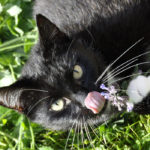In Praise of the Black Cat
Blog by Laura Carroll, Pet Greens staff and bona fide crazy cat lady
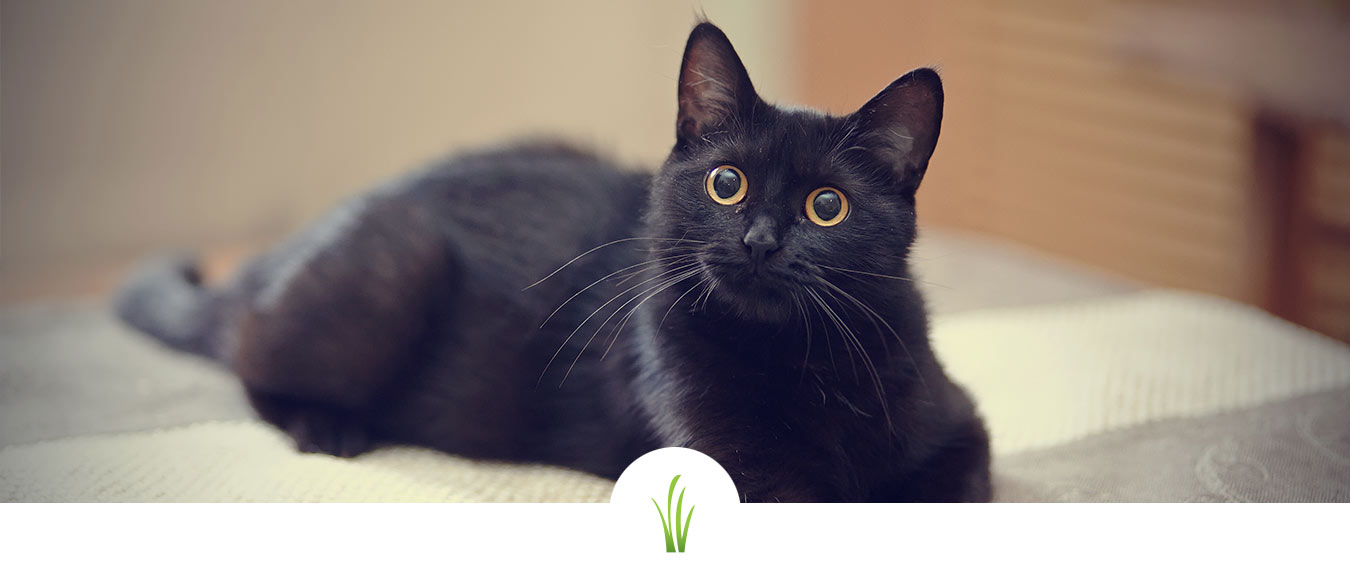
In celebration of Black Cat Appreciation Day (which falls annually on August 17th) we wanted to take a look at the many positive aspects of what some cat lovers feel are the most stunning members of F. catus.
Fun Fact: All cat coat colors come from red or black fur – even white cats!
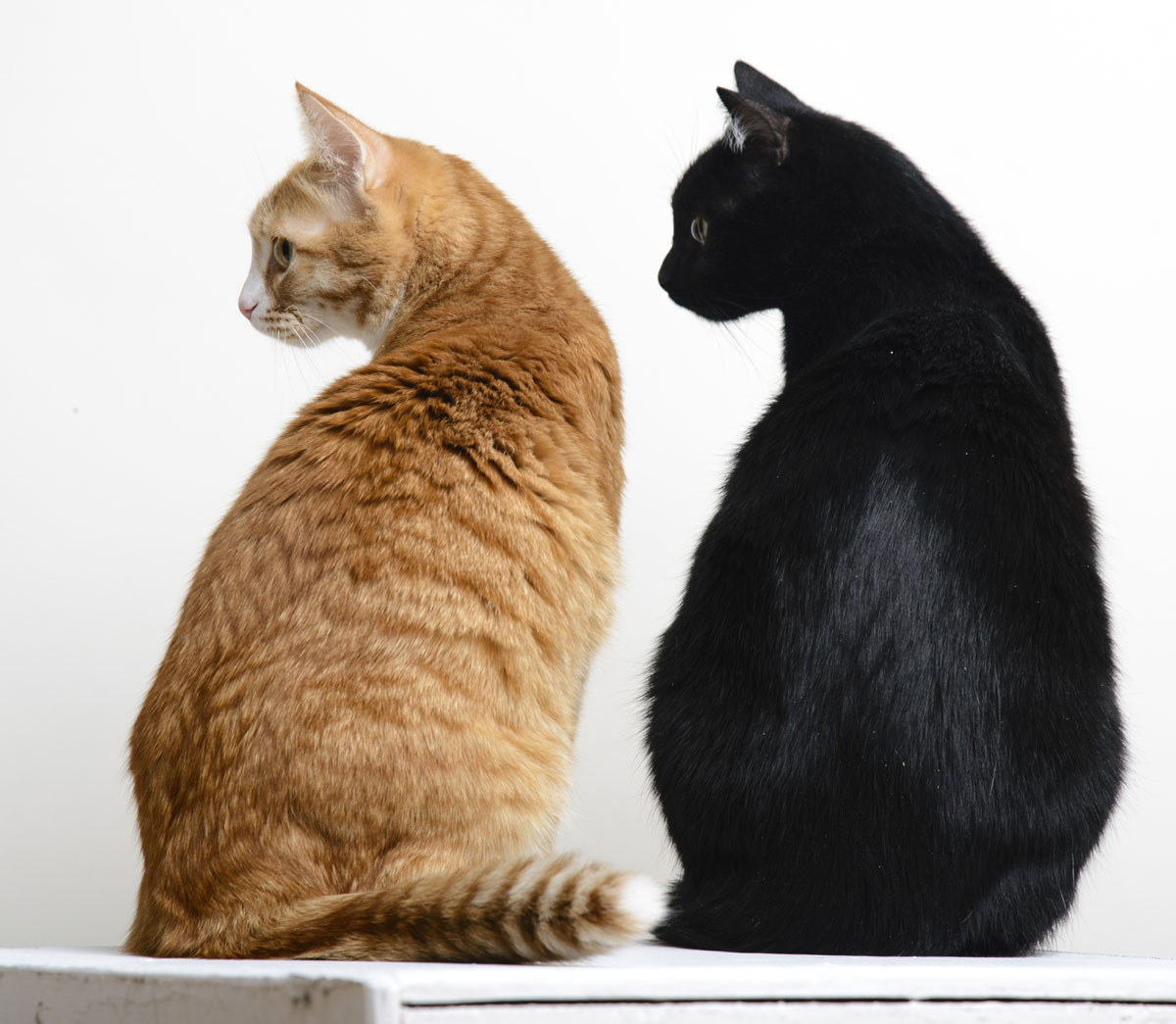
The genetics of cat coat colors and patterns is a complex and fascinating subject. For one thing, white cats have a dominant “masking” gene that effectively hides the black and/or red colors. If you’re interested in learning more about this, here’s just one of many articles on the subject.
But our focus today is on solid-black cats. You’ve heard the old wives’ tales about the bad luck black cats bring. While almost no one today actually believes this, the superstition lingers on. It’s part of the reason why black cats get a bad rap in some circles. Some even speculate that this was the reason why, historically, fewer black cats were adopted from shelters than any other color. Thankfully, this is not the case now.
Fun Fact: Black is the most common coat color in cats, occurring in roughly 1 in 5 cats
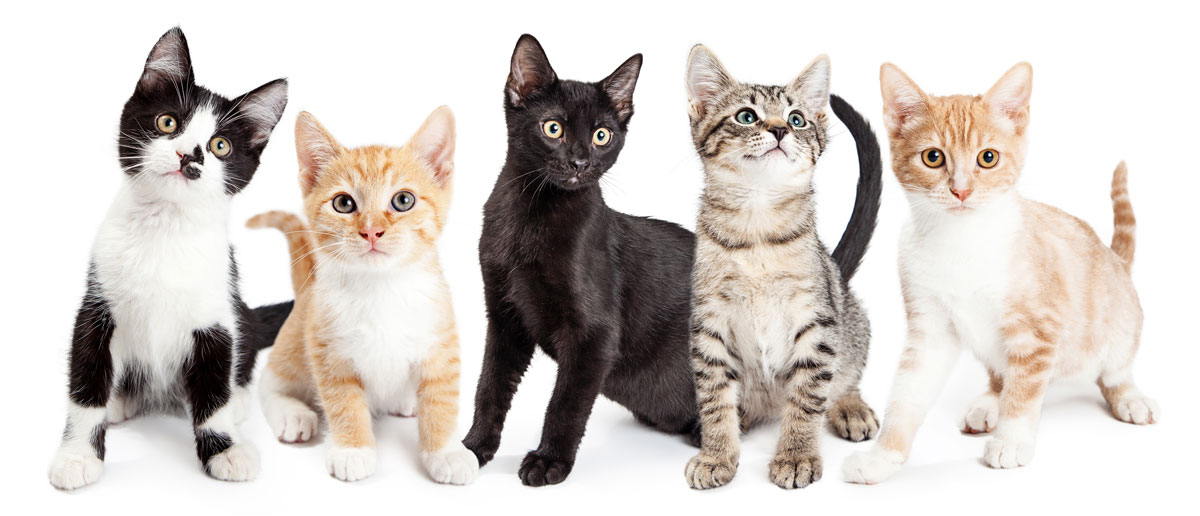
Oddly, black cats make up a larger percentage of cats being turned in to shelters, averaging around 30%. Statistics also show a higher percentage of black cats ultimately face euthanasia – it’s really only because there are more of them to begin with, as black cats are just as likely to be adopted as any other coat color. In the past some shelters had a moratorium on black cat adoptions in the month of October, fearing adopters might want them for nefarious purposes (the shelter I once worked for used to do this.) However, most came to realize that careful screening would prevent any cat from falling into the wrong hands and they were doing a disservice to their black cats by halting adoptions for one month out of each year.
It is true that black cats need a bit of extra help from shelter staff in order to be seen and appreciated by the public: they’re harder to see in the confines of a cage, and they can be more challenging to photograph. Shelters and rescues need good photos of their adoptable animals to post online. So if you’re visiting your local shelter in search of a cat or kitten, be sure to make that little extra effort to see who might be crouching in the corner of that enclosure – you may find a hidden beauty!
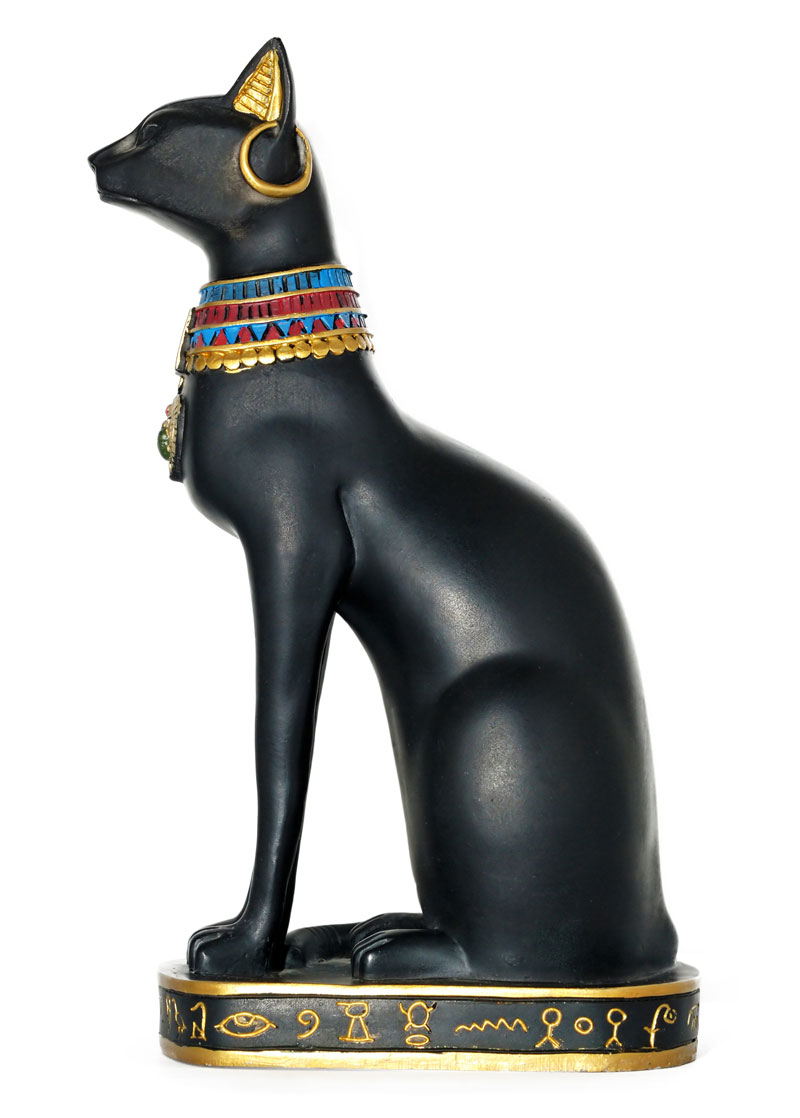
Fun Fact: Black cats were once considered to be royalty. All cats are queens and kings in a cat-lover’s eyes, but in ancient Egypt the black cat was especially revered, and black cats today are actually descendants of those regal beings.
While many breeds of cat can have black or black-mixed coats, the Bombay cat is currently the only breed featuring exclusively solid black coats. Often faint striping can be seen in the undercoat of black cats, especially in kittens. All cats carry the tabby coat pattern gene even if it is masked by a more dominant fur pigmentation gene.
It’s always risky to assign personality traits to a cat based on their coat – cats seem to have a real penchant for proving us wrong! However, there are certain “accepted” characteristics of black cats that definitely work in their favor, in terms of adoptability as well as longevity.
Black cats are generally thought to be
- intelligent and aware
- friendly and very affectionate with their people
- personable and gregarious
- highly adaptable to variations in their environment
All of these traits suggest they would have an easier time adjusting to a new home or changes within the home. I have personally known a number of black cats throughout my life (and the proud parent of two) and as far as those particular cats go I can confirm that all of the above has been true. Here are some recent photos of the sweet boy that I fostered and eventually adopted (I know, I know – but how could I resist?)
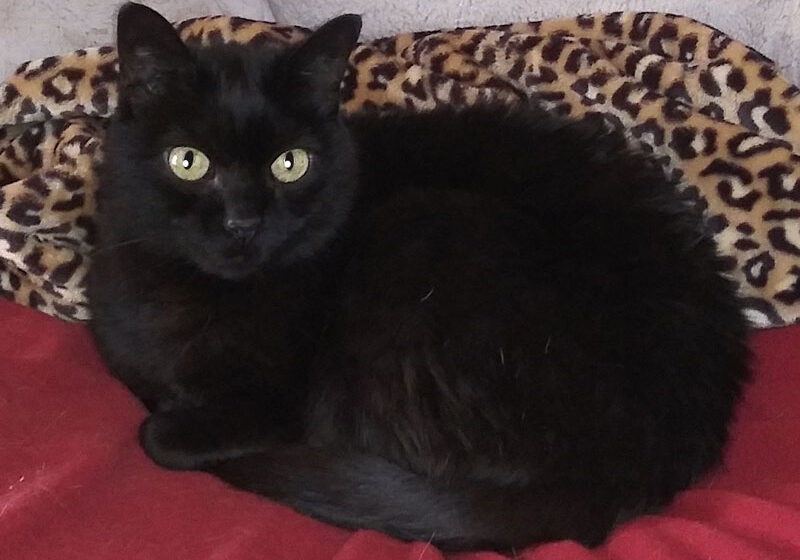
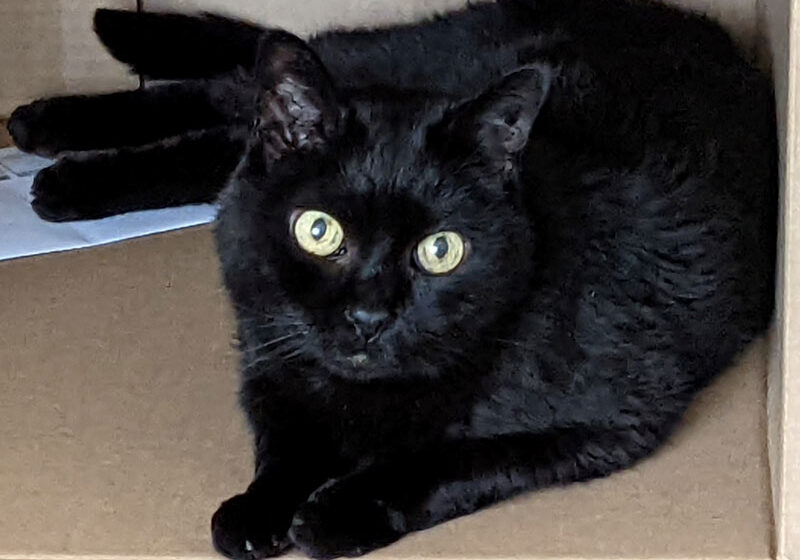
Another notable feature of black cats: scientists have discovered that melanism (the term for dark coat coloration) appears to also provide black cats with exceptional resistance to certain diseases, like feline immunodeficiency virus (FIV). This does not mean your black cat will never become ill. Of course, he or she will need regular check-ups as all cats do, but it’s a promising development that deserves further research.
Circling back to the myths about black cats, I think it’s worth noting that according to Scottish folklore finding a black cat on your doorstep means you will be coming into money. In Japan it is thought to be good luck if a black cat crosses your path, especially if you’re a single person looking for love. These are just two of the many reasons black cats are deserving of our appreciation – although as far as I’m concerned we don’t really need even one!



